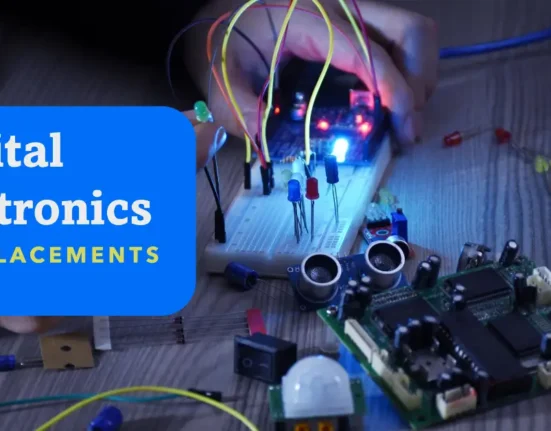“The whole world is analog and digital play only bits part”
If you are interested in pursuing a career in the analog industry, you might find it challenging to break into this field without a solid foundation in some key subjects. In this blog post, I will explain why any aspiring analog engineer needs these subjects to study for analog jobs are important and how you can improve your skills and knowledge in them.
The analog industry is a broad term that encompasses various applications and domains that rely on analog signals, such as audio, radio, sensors, power management, biomedical devices, and more. Analog signals are continuous and vary in amplitude and frequency, unlike digital signals which are discrete and have only two states (0 or 1). Therefore, analog circuits require different design techniques and tools than digital circuits.
We have covered a complete article on 4 major differences between Analog IC and Digital IC.
Subjects to Study for Analog Jobs
1) Circuit analysis: This is the basic skill of understanding and one of the most important subjects to study for analog jobs. In this, you know how electrical components such as resistors, capacitors, inductors, diodes, transistors, and op-amps work together to create a desired function or behavior.
You need to be able to analyze the voltage, current, power, and energy of a circuit using methods such as Kirchhoff’s laws, Thevenin’s theorem, Norton’s theorem, superposition, mesh analysis, nodal analysis, etc. You also need to be familiar with the frequency domain analysis of circuits using concepts such as impedance, admittance, phasors, complex numbers, Fourier series, Fourier transform, Laplace transform, etc.

2) Analog Electronics: This is the branch of analog engineering that deals with the design and implementation of electronic devices and systems and another core fundamental subjects to study for analog jobs.
You need to have a good understanding of the characteristics and operation of various electronic components such as diodes, transistors (BJT and MOSFET), op-amps, comparators, oscillators, amplifiers, filters, converters (ADC and DAC), regulators, etc. You also need to know how to use common electronic instruments such as multimeters, oscilloscopes, function generators, logic analyzers, etc.

3) Control systems: This is the discipline of engineering that deals with the design and analysis of systems that can regulate their own behavior or output according to a desired input or reference.
You need to know how to model dynamic systems using differential equations or state-space representation. You also need to know how to design controllers using methods such as root locus, Bode plot, Nyquist plot, PID tuning, etc. Some of the applications of control systems in analog circuits are feedback loops (negative and positive), stability analysis (gain margin and phase margin), compensation techniques (lead-lag compensator), etc.

4) Signal processing: This is the field of engineering that focuses on the manipulation and analysis of signals such as sound, image, video, etc.
You need to know how to apply mathematical techniques and algorithms to process signals in both time and frequency domains. Some of the topics that are relevant for signal processing are sampling theorem, aliasing, quantization, convolution, correlation, filtering (FIR and IIR), modulation (AM and FM), demodulation (envelope detector and PLL), encoding (PCM and DPCM), decoding (Delta modulation and PWM), etc.

These are some of the core subjects that you need to master if you want to excel in the analog industry. Of course, there are many other topics that are also important depending on your specific area of interest or specialization. However, these subjects will give you a solid foundation and a competitive edge in this field.
If you want to improve your skills and knowledge in these subjects, there are many resources available online such as books, courses, videos, podcasts, blogs, forums, etc. You can also join our community where you can interact with other analog enthusiasts or professionals and learn from their experiences and insights. You can also participate in online challenges or competitions where you can test your skills and creativity by solving real-world problems or designing innovative solutions using analog circuits.
We have created a comprehensive guide of electronics roles to go for..
The analog industry is a fascinating and rewarding field that offers many opportunities for learning and growth. However, it also requires a lot of dedication and hard work to succeed in this field. If you are passionate about analog circuits and willing to invest your time and effort in learning these subjects, you will find it easier to get into this industry and achieve your career goals.









